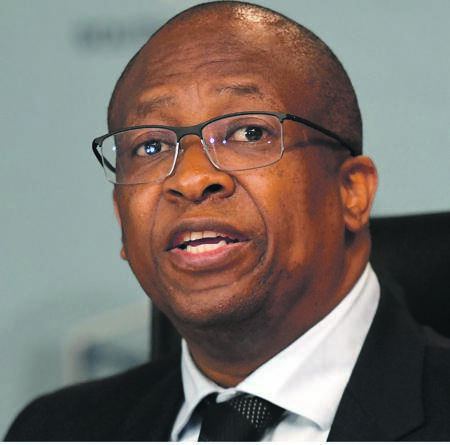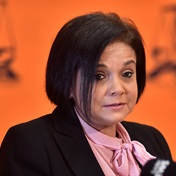
After numerous campaigns by civil society organisations, South Africans will finally know who funds political parties and be assured that no foreign funds will influence elections.
In a move seen as an attempt to make South Africa less vulnerable to capture by foreign countries, the Electoral Commission of SA (IEC) is planning to implement a new Political Party Funding Act from April 1 to prevent political parties from receiving foreign funds.
Prohibiting certain donations made directly to political parties and regulating the disclosure of donations that have been accepted are among the raft of changes to be introduced.
The act gives the commission powers to request any person to produce, in whatever form, any relevant books, records, reports and other documentation to monitor compliance.
Political parties could be fined up to R1 million by the electoral court if they flout the act.
In terms of the new regulatory framework, every donation above R100 000 will have to be disclosed to the IEC, and no person or party can donate more than R15 million to a political party within a financial year. State institutions will be prohibited from funding a political party.
Once the act is implemented, political parties must disclose monies donated to them.
The act was signed into law by President Cyril Ramaphosa in January to allow for the equal distribution of funds and to disclose who funds parties.
Until now, there has been no clear regulatory framework within which funding to political parties happens.
The new act will also prohibit donations that are known, or suspected, to originate from the proceeds of crime.
There were claims that the EFF received funds – which allowed it to register the party and contest the general elections for the first time in 2014 – from self-confessed cigarette smuggler Adriano Mazzotti.
IEC chief electoral officer Sy Mamabolo told City Press on Friday that the new act would fundamentally change the political funding landscape in the country for the first time.
“In terms of the new act, we will also have what we call a multiparty democracy fund, which will hopefully be resourced by corporates, private citizens as well as foundations.”
This means that private sources will contribute to a fund that is allocated to political parties according to a formula, rather than directly funding one political party.
Mamabolo said every donation above R100 000 would have to be disclosed to the commission and no person or entity may donate more than R15 million in one year.
“Otherwise, you will begin to buy influence over the political process,” said Mamabolo.
“This act is about improving the financial governance of political parties and, in so doing, have them be better bodies – ones that facilitate participation in the political process.”
Mamabolo warned that the election of political parties that receive money from foreign countries would threaten the national sovereignty of the country.
“You want political decision-making processes in the country to be free from external influences, so that our national sovereignty can be preserved at all times.
“We want to prevent foreign influence and ensure that our national sovereignty is preserved.
“This act is the first of its kind in the country. We are happy to implement it.”
However, Mamabolo expressed the belief that the act would have little impact on the May 8 general election.
“Money that is received before the act is operational will not have to be disclosed, but monies received from April 1 onwards will have to be disclosed.
“Because of the lateness of the act’s implementation, I believe that the act will have scant impact on this election.”
Smaller parties are set to score big when the act is implemented.
The multiparty democracy fund, along with the represented political parties fund, only apply to parties that have representation in either the National Assembly or provincial legislatures. The increase of the equity component from 10% to 33% can only benefit smaller parties.
Currently, the system allows funds to be distributed by the IEC based on the number of seats a political party has in Parliament. The ANC, as the biggest party in terms of seats in Parliament, receives the lion’s share.
The ANC and DA have expressed divergent views on the act.
Fikile Mbalula, the ANC’s head of elections, said on Saturday that the act would reveal who gets money from foreign countries.
“It will regulate our democracy so that it is not sponsored by sellouts who want to undermine South Africa’s sovereignty,” he said.
But the DA expressed concern that the act would be a blow to multiparty democracy.
The party’s chief executive, Paul Boughey, said the act could have a “chilling effect”, particularly for opposition parties.
“The need for openness and transparency in party funding should be a norm in a healthy democracy. However, the forced disclosure of donors in a South African context could well have a chilling effect on multiparty democracy.
"Many donors, who care about a strong and vibrant democracy, could well be put off by punitive action by the ANC – which could withhold tenders or use organs of state against them.
“In addition, it is unclear that the IEC has the administrative capacity to implement the act.”
Boughey said the IEC might want to take a management fee for the administration of the multiparty fund, for example, and embark on a fundraising drive for this fund.
“In addition, there is scope for abuse in that the DA will always comply with the law, but as the Bosasa [scandal] shows, the ANC has no compunction in accepting funds in a corrupt manner. Campaigns are very expensive, and if the opposition are unable to raise funds from legitimate and legal donors, it could mark the death knell of multiparty democracy.”
The commission has published the regulations to support the implementation of the act. Members of the public and political parties have until March 21 to make submissions.




 Publications
Publications
 Partners
Partners








